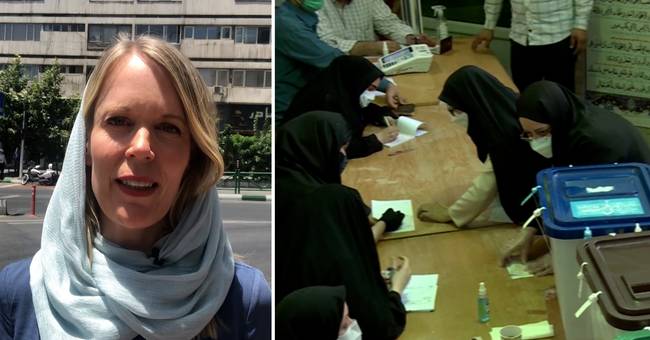The impact of the expected situation on the mood during the elections. The last time we were in Tehran during the 2017 presidential election, there were long queues outside the polling stations. This time it was more scattered with people. Nearly 60 million voters have the right to vote in elections. But despite senior leader Ayatollah Khamenei repeatedly urging Iranians to go vote, many voters chose to stay home on election day.
According to official figures, the participation rate was 48.8 percent.
critical time
Raisi takes over from Hassan Rouhani at a critical time for Iran. US President Joe Biden has begun attempts to revive the Iran nuclear deal, which has been in a coma since the country withdrew under the leadership of Donald Trump in 2018 and imposed harsh sanctions on Iran. The country is going through a deep economic crisis exacerbated by the Covid pandemic.
Khamenei’s successor
The elections reinforce speculation that Raisi is supposed to be a successor to Iranian Supreme Leader Ayatollah Ali Khamenei, who is close to him. The Supreme Leader is the decisive power holder in Iran, even in areas such as foreign policy.
Ebrahim Raisi is Iran’s chief justice and is subject to US sanctions. According to Amnesty International, he was said to have been involved in ordering thousands of executions, among others, of political prisoners during the 1980s. He himself did not comment on the allegations.
Iran more closed?
The reformists – the bloc to which outgoing President Hassan Rouhani belongs – who want Iran to open up to the West lost much of their influence in last year’s parliamentary and presidential elections. On Saturday, Rouhani visited Raisi to express his congratulations, and Raisi criticizes relations with the West, and calls for a more closed Iran with a “resistance economy” that must succeed despite sanctions from the United States and Europe.
Determining the future of the nuclear power agreement
During the election campaign, Raisi toned down his criticism of the West. Some observers believe that his choice may not affect the indirect negotiations with the United States currently underway in Vienna to wake it up in the 2015 nuclear energy agreement.
If the talks in Vienna yield results, lighter sanctions may be imposed on Iran against the country that limits uranium enrichment. According to Iran’s outgoing Foreign Minister, Javad Zarif, a deal is likely to be reached before Raisi takes office in August. But the outcome is by no means certain, both the United States and Iran insist that it is the other side that should take the first step.

“Falls down a lot. Internet fanatic. Proud analyst. Creator. Wannabe music lover. Introvert. Tv aficionado.”




More Stories
More than 100 Republicans rule: Trump is unfit | World
Botkyrka Municipality suspends its directors after high-profile trip to New York
Huge asteroid approaching Earth | World